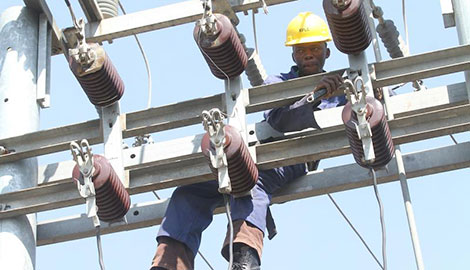×
The Standard e-Paper
Fearless, Trusted News
 |
| An employee of Kenya Power fixes supply lines in Homa Bay town at the weekend 02/08/14 during the upgrading power supply systems. PHOTO: TITUS MUNALA/STANDARD |
Kenya: The Government has plans to introduce what it calls a time-of-use tariff that it hopes will cut the cost of power to manufacturers.
This will lower the cost of production to the manufacturers who will in turn be expected to pass on the benefits to consumers through reduced prices of goods.